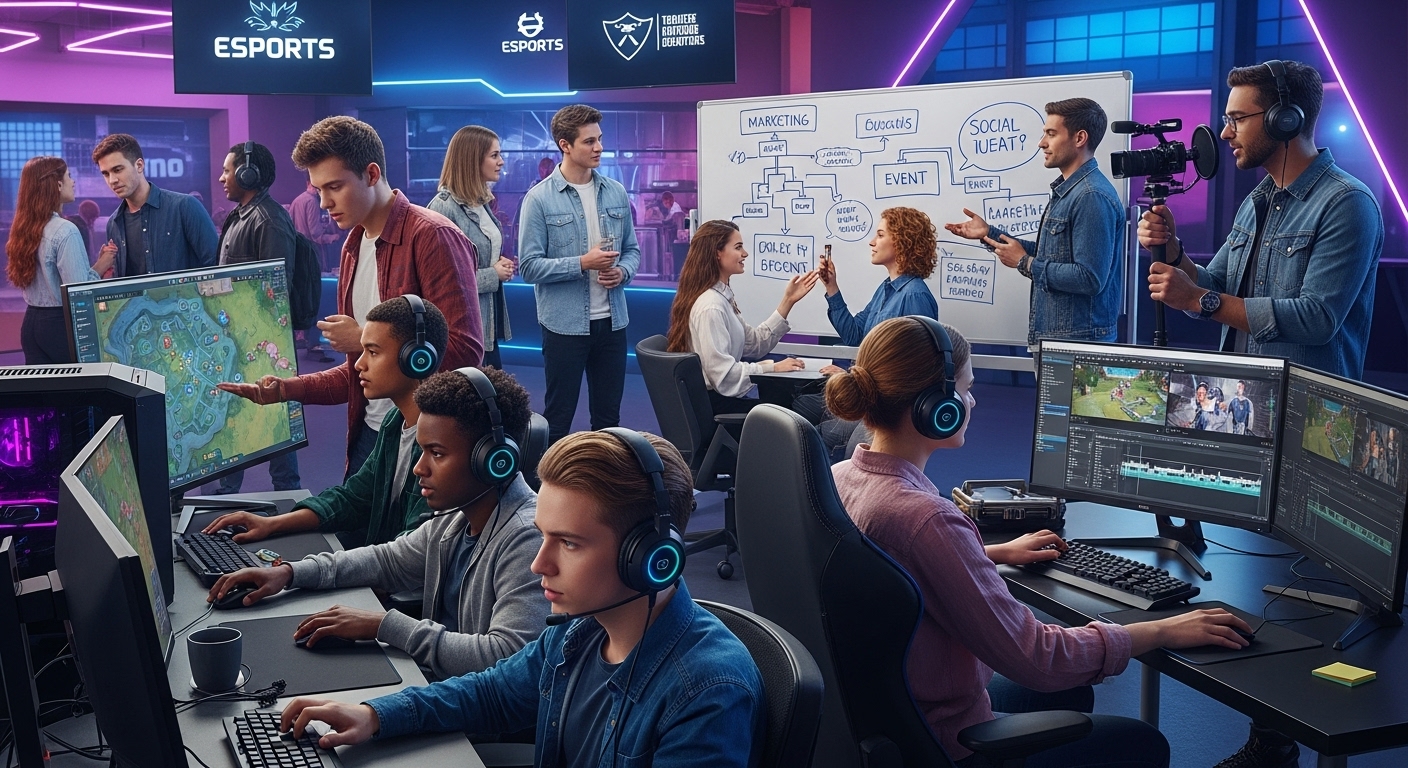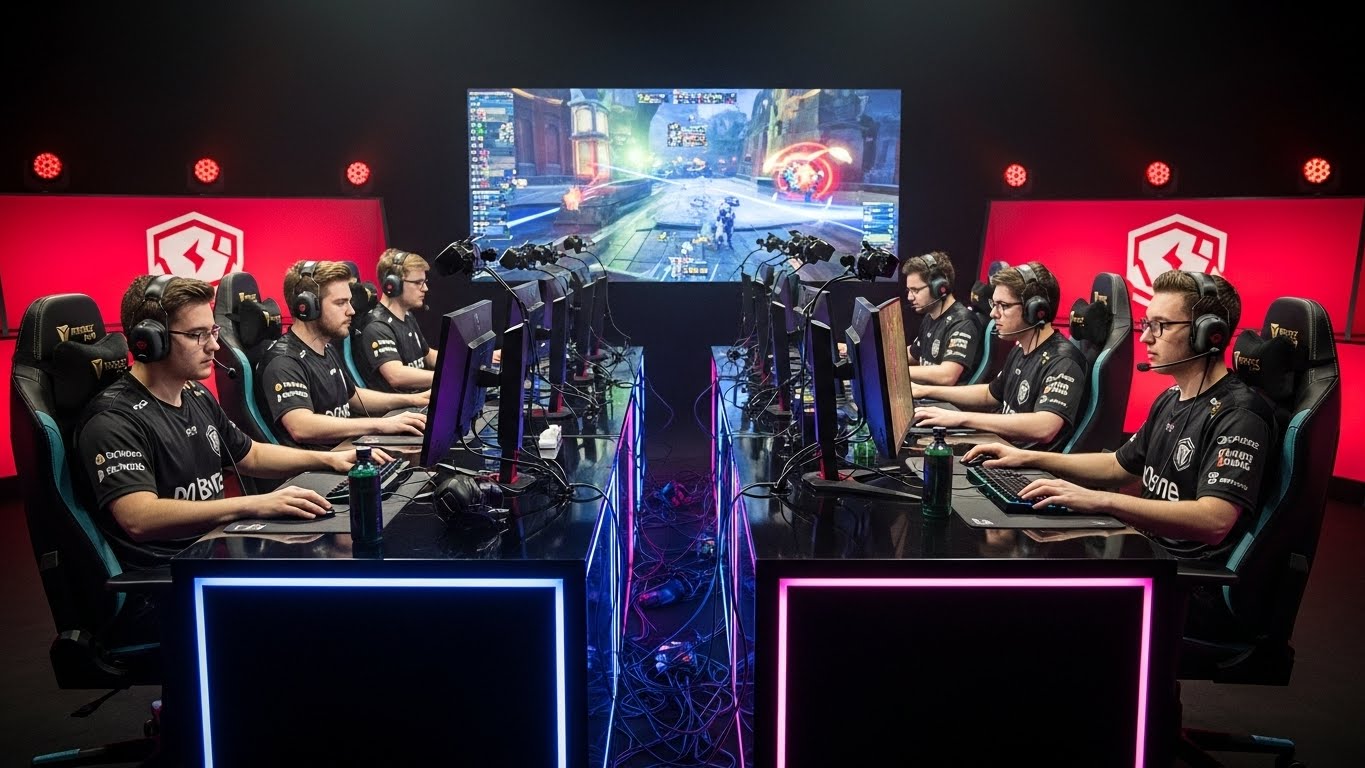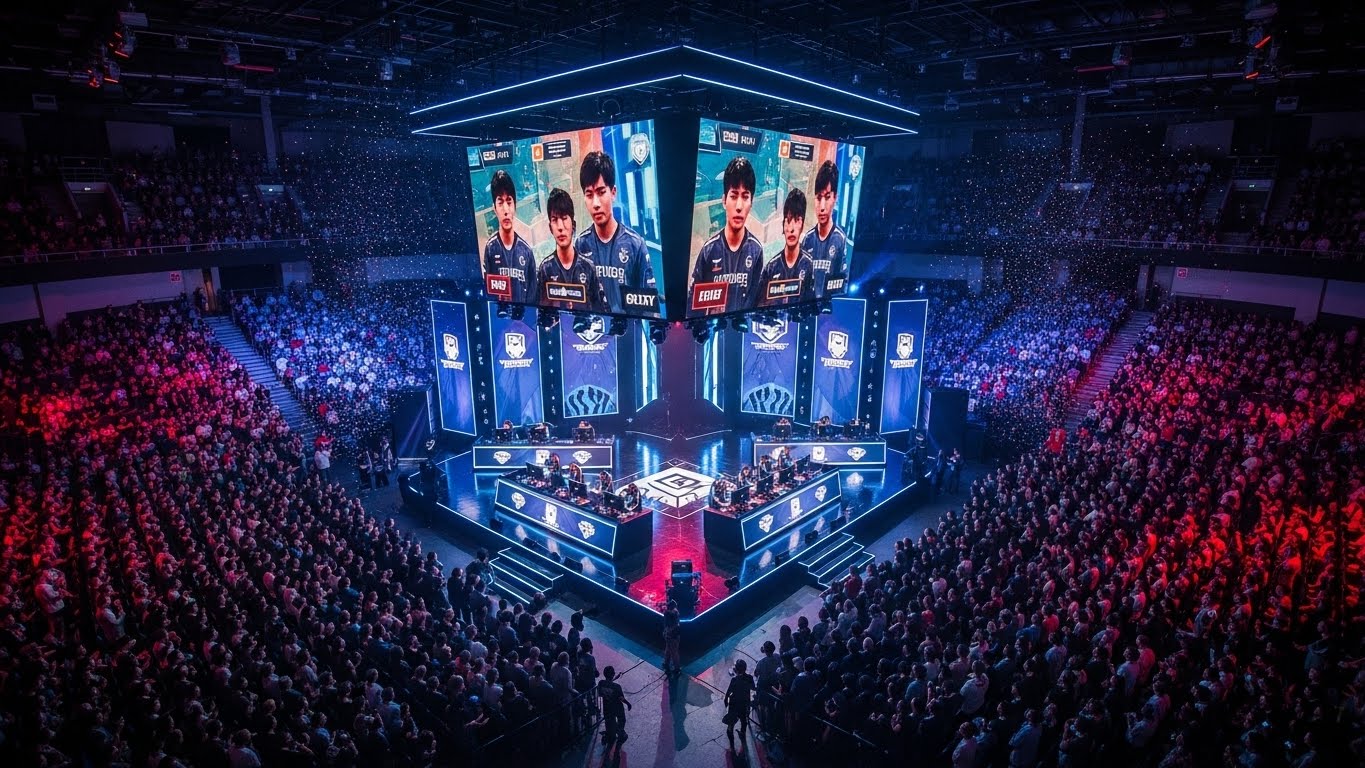Esports has grown into a multi-billion-dollar global industry, attracting millions of viewers, professional athletes, and sponsors. But beyond professional competition, esports also serves as a fertile ground for content creators. From streamers and video editors to social media personalities and analysts, the esports ecosystem provides countless avenues for individuals to turn their passion for gaming into a thriving career.
In this blog, we’ll explore how esports creates opportunities for content creators, the types of content that thrive in this space, and strategies for leveraging esports to build a successful career.
The Rise of Esports and Content Creation
The rapid growth of esports has created a massive digital audience. Platforms like Twitch, YouTube, TikTok, and Instagram allow fans to watch live tournaments, follow their favorite teams, and engage with content creators who share insights, entertainment, or tutorials.
This expansion has created an ecosystem where content is just as important as competition. While professional players dominate the tournaments, content creators fill the gaps—providing commentary, analysis, highlights, entertainment, and community engagement.
Esports content is consumed in many forms: highlights, memes, strategy guides, interviews, podcasts, and live streams. This diversity allows creators with different skills and interests to find their niche.
Opportunities for Streamers
Streaming is the most visible way esports supports content creation. Platforms like Twitch and YouTube Gaming have become stages where creators can showcase their skills, personality, and commentary.
1. Game Streaming and Live Commentary
Many aspiring content creators start by streaming popular esports titles like League of Legends, Valorant, CS:GO, or Fortnite. Live streaming allows them to build a fan base, interact with viewers in real time, and gain sponsorships.
2. Player-Streamer Collaborations
Professional players often collaborate with content creators to expand their reach. Streamers can provide behind-the-scenes content, analysis, or entertainment alongside pros, which adds value for fans and builds credibility for the creator.
3. Revenue Generation
Streaming allows content creators to monetize through subscriptions, donations, ads, and sponsorships. Esports tournaments create spikes in viewership, which content creators can capitalize on through live commentary, reactions, or highlight streams.
Opportunities in Video Content
Video content is another thriving area created by the esports boom. Platforms like YouTube and TikTok are perfect for creating short-form or long-form esports content.
1. Highlight Reels and Montage Videos
Esports tournaments are filled with exciting moments. Creators who compile highlight reels, epic plays, or montage videos attract huge audiences. Fans love reliving clutch moments, incredible shots, and strategic plays.
2. Analysis and Educational Content
Many viewers want to improve their own gameplay. Content creators who provide strategy guides, tutorials, or in-depth analysis of professional matches help fans learn while building authority and trust in the community.
3. Esports News and Updates
Keeping up with esports tournaments, roster changes, and game updates is a massive task for fans. Content creators who provide news, commentary, and insider information become go-to sources for the community.
Social Media Influencers and Esports
Social media has amplified the opportunities for esports content creators. Short clips, memes, and viral moments can reach millions of viewers in a matter of hours.
1. TikTok and Instagram Clips
Short-form content is perfect for viral moments. Creators can highlight funny plays, epic fails, or inspirational moments from esports tournaments. Engaging clips often attract sponsorships and collaborations with brands.
2. Community Engagement
Social media allows creators to engage directly with their audience, conduct polls, host Q&A sessions, or organize giveaways. This engagement strengthens their brand and increases fan loyalty.
3. Cross-Promotion
Successful esports content creators often collaborate with other creators or professional players. Cross-promotions can significantly grow their audience and provide opportunities for brand partnerships.
Esports Podcasts and Commentary
Podcasts have become increasingly popular in esports, offering in-depth discussions about tournaments, strategies, and player stories.
1. Insightful Analysis
Podcasts provide a platform for detailed commentary that can’t be delivered in short videos. Creators can break down game mechanics, discuss team strategies, and provide historical context, building authority within the esports community.
2. Interviews with Players and Teams
Interviews with professional players, coaches, and analysts give content creators exclusive material that draws in dedicated fans. These interviews often reveal behind-the-scenes insights that viewers can’t get elsewhere.
3. Monetization Opportunities
Podcasts can be monetized through sponsorships, advertisements, and premium content subscriptions. High-quality esports podcasts attract both fans and industry partners, creating sustainable revenue streams.
Collaborations with Esports Organizations
Esports organizations increasingly collaborate with content creators for promotion, fan engagement, and brand building.
1. Team Partnerships
Teams often work with creators to produce content like match previews, behind-the-scenes footage, and player interviews. Creators gain exposure, while organizations strengthen their connection with fans.
2. Sponsored Content
Brands and esports organizations seek creators to promote tournaments, merchandise, or new games. Sponsored content allows creators to monetize their audience while contributing to the growth of esports.
3. Event Coverage
Large tournaments provide creators with opportunities to cover live events, produce vlogs, or host live streams. Being present at events allows them to network with teams, brands, and other creators, expanding their professional opportunities.
Emerging Opportunities: Virtual Events and Esports Experiences
The rise of virtual events has opened new avenues for content creators.
1. In-Game Content Creation
Creators can produce in-game experiences, custom maps, or cosmetic showcases that enhance fan engagement. Many games now provide tools for creators to integrate their content directly into esports platforms.
2. Interactive Streaming
Some tournaments now allow interactive live streams where fans can vote, predict outcomes, or participate in challenges. Content creators can build interactive experiences around these features, offering unique engagement that traditional media cannot match.
3. Cross-Media Storytelling
Creators are combining gaming, animation, music, and narrative storytelling to build multi-platform experiences. These creative approaches help esports content stand out and attract diverse audiences.
Skills That Content Creators Develop Through Esports
Being a successful esports content creator requires a combination of gaming expertise, digital skills, and community engagement.
Key skills include:
- Gameplay Knowledge: Understanding game mechanics, meta, and strategies.
- Video Editing: Creating high-quality, engaging content.
- Live Hosting Skills: Entertaining audiences during live streams or events.
- Social Media Management: Growing and interacting with audiences across platforms.
- Networking: Collaborating with players, teams, and other creators.
These skills often translate into broader digital media opportunities beyond esports, opening doors for careers in streaming, production, marketing, and entertainment.
The Future of Esports Content Creation
The future of esports content creation is full of potential. Advancements in technology, AR/VR, and AI-generated content will allow creators to explore immersive experiences for fans.
Expected trends include:
- Virtual Reality Esports Coverage: Live immersive experiences for viewers.
- AI-Enhanced Highlights: Automated editing tools to generate clips instantly.
- Interactive Fan Experiences: Streamers and creators offering real-time participation in tournaments.
- Global Collaborations: Multi-lingual and cross-cultural content targeting international audiences.
As esports grows globally, content creators will continue to play a critical role in connecting fans, enhancing engagement, and expanding the industry’s cultural influence.
Conclusion
Esports has created a thriving ecosystem where content creators can transform their passion into a career. From streaming and social media to podcasts, video content, and interactive experiences, opportunities are virtually limitless.
Content creators are not just entertainers—they are storytellers, educators, and community builders who bridge the gap between professional competition and fans. By leveraging their skills, creativity, and knowledge of esports, they contribute to the growth of the industry while building sustainable personal brands.
In the world of esports, the game doesn’t end when the match does. For content creators, every play, highlight, and tournament becomes an oppor



